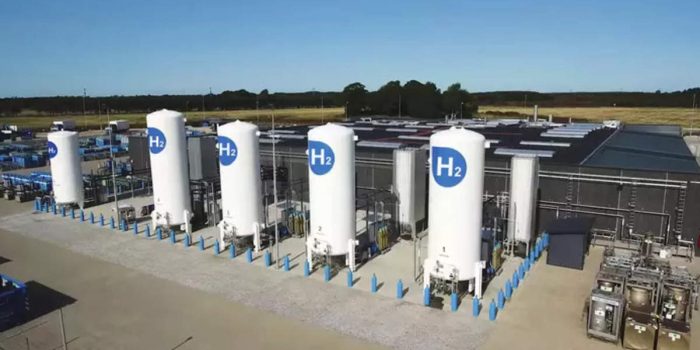In a bid to combat carbon emissions, the Japanese government has approved a revised plan that focuses on expanding the use of hydrogen as a fuel source. The ambitious goal is to increase the annual supply of hydrogen sixfold by 2040, accompanied by a substantial investment of 15 trillion yen ($107 billion) from public and private sectors.
Japan heavily relies on hydrogen produced from fossil fuels, but the revised plan aims to change that. However, experts have raised concerns that the strategies in place, such as the commercialization of hydrogen and ammonia, primarily benefit major industries deeply entrenched in fossil fuel technologies, which hold significant sway over government policies.
The revised plan outlines nine strategic areas of focus, including the development of water electrolysis equipment, fuel storage batteries, and large-scale tankers for hydrogen transportation.
Chief Cabinet Secretary Hirokazu Matsuno emphasized the potential of the hydrogen industry, stating that it can achieve a triple feat of decarbonization, stable energy supply, and economic growth. Matsuno expressed the government’s intention to promote hydrogen extensively in terms of demand and supply.

Japan envisions transforming into a “hydrogen society,” but the hydrogen industry is still in its early stages. Additional legislation is being drafted to support the construction of necessary infrastructure and supply chains to facilitate the commercial use of pure hydrogen and ammonia.
During a hydrogen council meeting, Prime Minister Fumio Kishida outlined Japan’s aspirations for an “Asian zero-emission community,” where Japanese expertise in hydrogen, ammonia, and other decarbonization technologies can make a valuable contribution. Kishida stressed that setting ambitious goals will enhance predictability and encourage long-term investment in large-scale hydrogen supply and demand.
The Cabinet also addressed the challenges posed by liquefied natural gas (LNG) shortages resulting from economic sanctions against Russia due to the Ukraine conflict. With rising demand for LNG as an alternative to Russian natural gas, Japan aims to develop a long-term strategy to secure stable energy supplies.

However, critics argue that the strategies prioritizing the commercialization of hydrogen and ammonia primarily serve the interests of influential businesses and major industries deeply invested in fossil fuel-based technologies, giving them significant control over government policies.
Despite these challenges and criticism, Japan remains steadfast in its vision of becoming a “hydrogen society” and contributing to an Asian community characterized by zero-emission technologies.


